UP TO THE MINUTE
A closer look at the importance of metal panel quality
January 13, 2025 at 6:00 a.m.By Joshua Karczewski, Central States Manufacturing.
Explore the three-quality level panels offered by Central States Manufacturing and discover which type is right for your project needs.
As the use of metal panels for roofing, siding and other building applications continues to grow in popularity, it is important to understand which type of metal panel is best suited for each project. To meet these needs, Central States Manufacturing offers three levels of metal panel quality, each offering a unique set of benefits: Standard, Prime and Ultra. Continue reading to learn more about the differences between each.
Since the biggest concern for customers is not always cost and budget, the three levels take many other factors and attributes into consideration. If you are not sure which level of protection you need, Central States has taken the guesswork out of selecting the panel quality that works best for your residential roofing or siding project. Our Standard level is the economical choice and offers a thick paint layer, a moderately robust anti-rust layer and steel core. Our Prime quality offers a thicker paint and anti-rust layer, with a more substantial steel core than the Standard level. Finally, our Ultra level features our thickest paint, anti-rust layer and steel core. The combination of different thickness levels of paint, anti-rust and steel core layers create the various levels of “protections” of each specific roof or siding panel
Refer to the diagrams below for a visual representation of the differences between the three quality levels so you can make the best choice for your project:
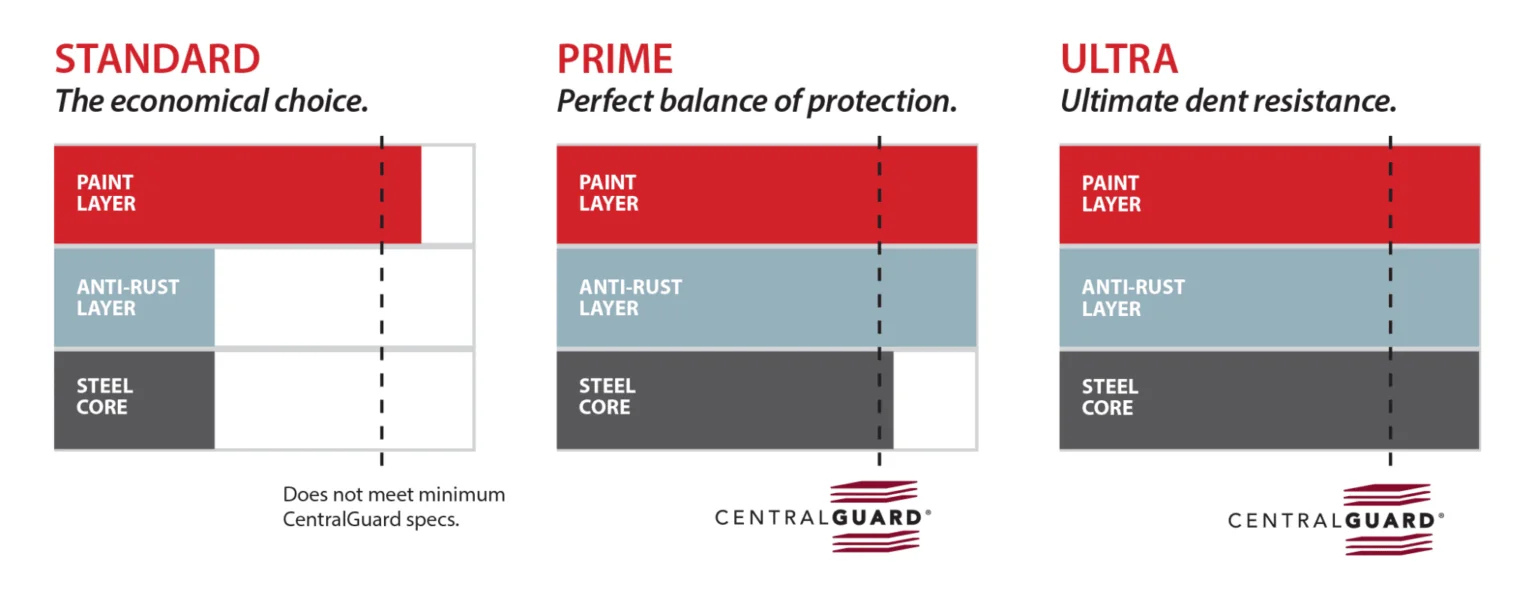
A deeper look
As seen in the diagrams above, the Prime and Ultra levels qualify for Central States’ CentralGuard performance system. What is CentralGuard and why should it matter in the selection of a panel? CentralGuard is Central States’ specific combination of performance features that go into making the highest-quality metal panels. Available on our Prime and Ultra panels, the CentralGuard name is a guarantee to customers that you have the best protection and a lifetime paint warranty. For more cost-conscious consumers, you may consider Standard for your metal roof, which comes with a great warranty in an economical panel. Property owners are sometimes surprised to learn that upgrading their panel selection from Standard to Prime could be a very small upcharge, so it’s worth asking your contractor for CentralGuard to get the best protection and a lifetime paint warranty.
Now that you understand the CentralGuard difference, let’s quickly review the other differences between Standard, Prime and Ultra. This helpful grid lays out the 3 qualities and how they stack up in the residential roofing offering:
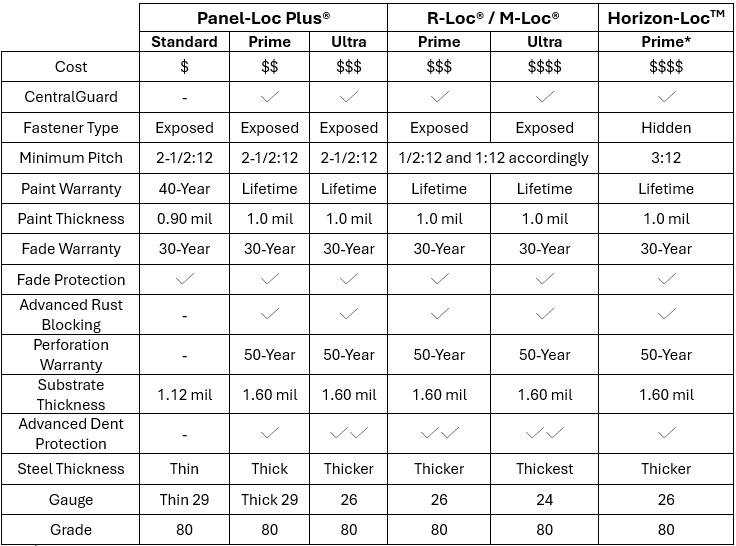
Let’s talk a bit more about the steel thickness/gauge. Our thickest option, 24-gauge, is available* on Central States’ R-Loc and M-Loc panels. The lighter 29-gauge metal roofing panel comes in a wide range of thickness and hardness levels – so, depending on your product selections, some 29-gauge panels are thicker or thinner than other 29-gauge panels. It’s important to note that there’s not a large difference in price for the thicker, better product, but consumers can expect to see a big difference in performance against hail and other roof impacts that could create dents. By understanding dent protection, you can dramatically improve your roof with minimal impact on your wallet.
In the metal industry, gauge defines a product’s range of thicknesses. Due to price pressures, some manufacturers have started offering the thinnest allowable metal allowed in a gauge spec. These products are still marketed as “29-gauge,” but may not perform as well as thicker 29-gauge panels. There can be up to a 40% difference in dent protection between the low and high end of a 29-gauge panel. This difference in dent protection is an important consideration when investing in a metal roof, especially if you live in an area prone to heavy storms (or maybe live by a golf course). Simply asking for a specific gauge is not enough, knowing that gauges can be thinner or thicker within each rating is an important differentiator.
Central States’ Panel-Loc Plus panel offers the widest range of options for customers to choose from in the Central States collection. With Standard, Prime and Ultra quality levels to choose from, a customer can find a panel that fits their needs, while enjoying the confidence and peace of mind that comes from owing a high-quality Central States metal roof, backed by a lifetime paint warranty and Central Guard protection.
Another important performance feature to consider when choosing a panel is the “grade” of metal. Central States uses Grade 80 metal for all its 26- and 29-gauge panels. This is important because Grade 80 is a hard steel. The combination of thickness of steel and hardness is great for metal panels that require dent resistance. This type of metal is not the best choice for every metal component, however. Making trim from Grade 80 would cause tiny cracks in the metal due to the hardness of the steel, which would eventually expose the metal trim to rain and eventually rust. Therefore, since trim has lots of sharp bends, Central States uses a softer steel such as Grade 50 or 33. Many manufacturers may only carry one grade of steel due to storage constraints, cost of multiple types of products and other factors. As a result of carrying fewer grades of material, these manufacturers could end up making panels out of soft steel that will dent making trim out of hard steel that will crack. Knowing the grades of material that your supplier uses is important in the decision-making process and should be considered. Central States is proud to provide a variety of products to enhance nearly any project’s need. When choosing metal, make sure to ask your supplier about the hardness of their metal panels and trim.
Original article and image source: Central States Manufacturing
Learn more about Central States Manufacturing Inc. in their Coffee Shop Directory or visit www.centralstatesco.com.


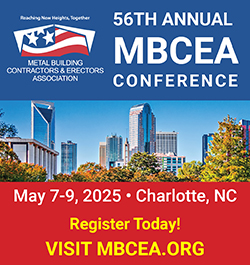









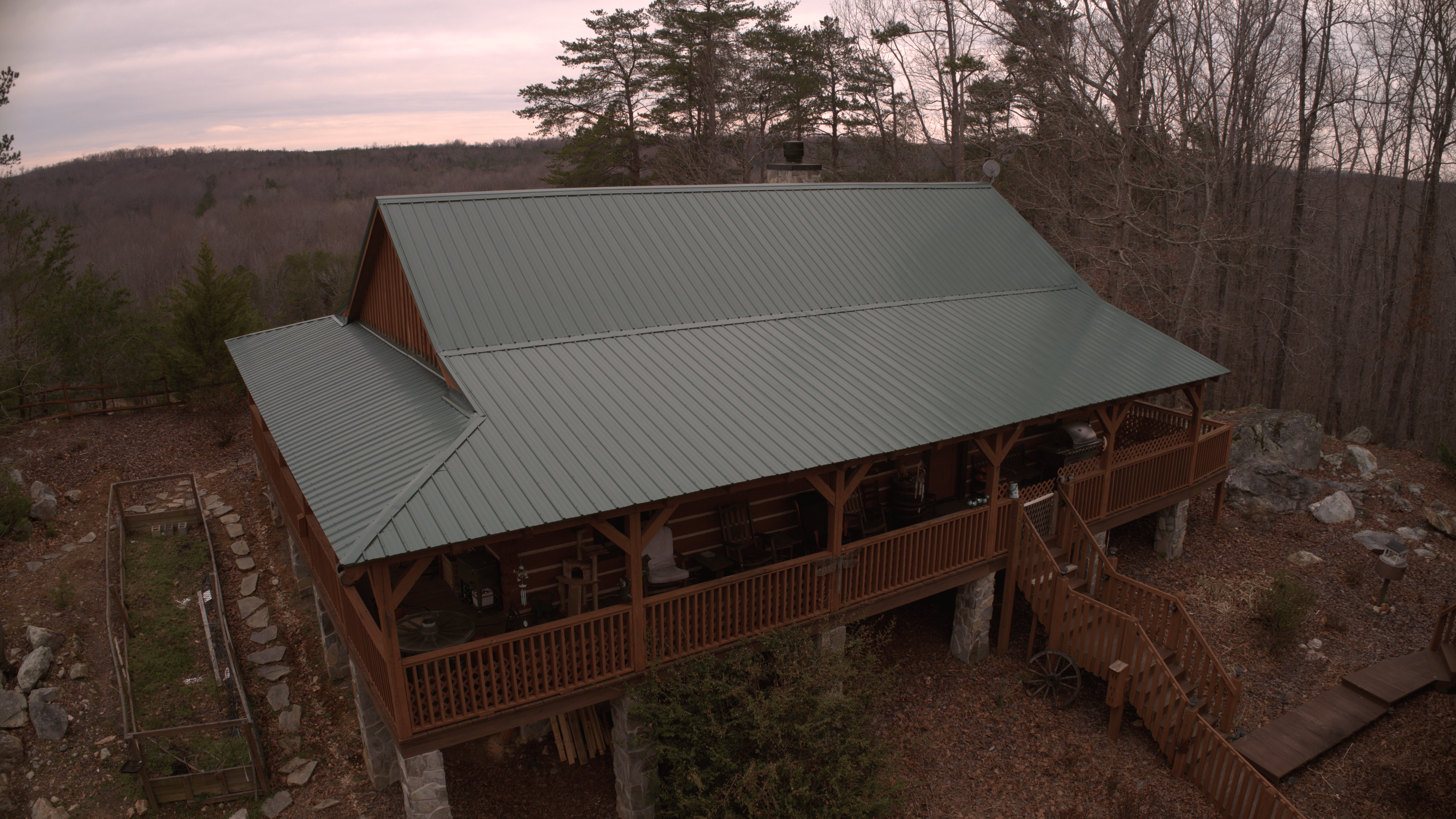


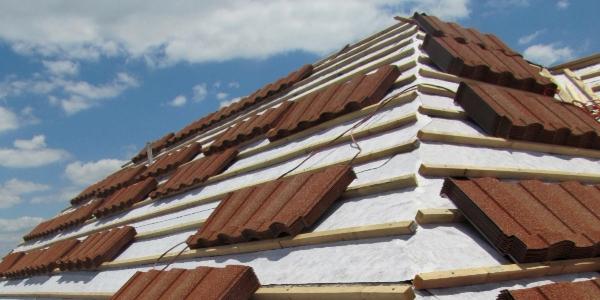




Comments
Leave a Reply
Have an account? Login to leave a comment!
Sign In